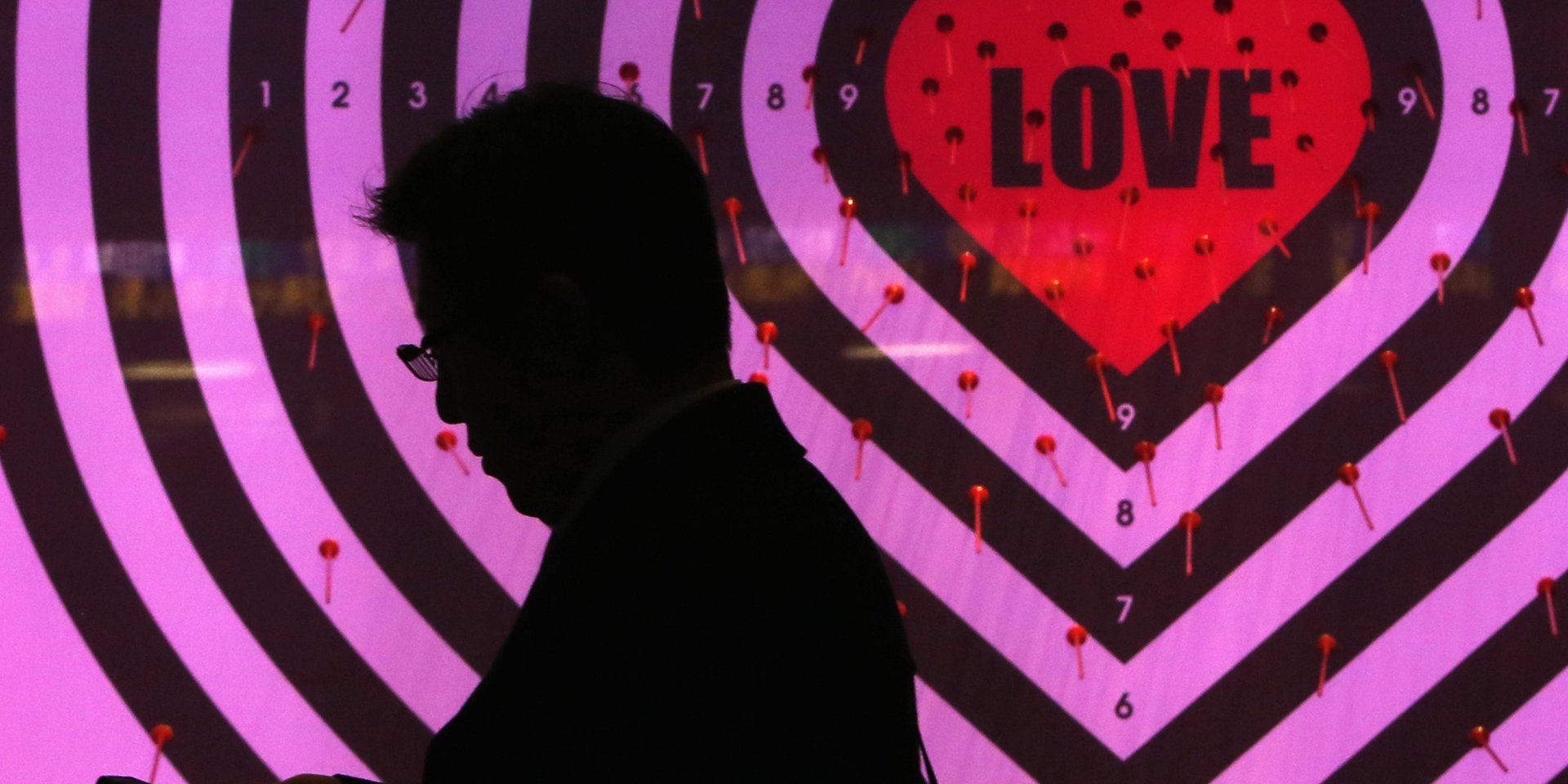Having an office crush can make you happier and more productive
Against all odds, office romances are thriving.


Against all odds, office romances are thriving.
Despite the fact that many workplaces have been forced to go virtual during the pandemic, the latest survey from the Society for Human Resource Management (SHRM) shows a 7% uptick in office crushes. A quarter of the employed Americans who participated in the study indicated that they’ve kindled or kept a romantic relationship with a colleague in 2020.
Alex Alonso, SHRM’s chief knowledge officer, isn’t surprised that amorous relationships have flourished within remote teams. For one, easing the borders between our professional and personal lives during Covid-19 has led more people to explore love matches with people they work with. The range of online collaboration tools allow colleagues to get to know each other deeper and faster, he says: “In Zoom, you’re seeing parts of their personal life much more clearly.” He adds that the loneliness and compounding stresses of remote work during Covid-19 have also made people seek consolation with someone within their company.
The study also found that 70% of respondents have been involved in an office tryst at some point in their professional careers. This is understandable, Alonso says, given that the average American will spend about 90,000 hours at work throughout our lifetime.
Catherine, a writer and athlete who has explored dating a colleague, attests to why the office is such a conducive milieu for finding a partner. Getting to see someone in various scenarios allowed her to appreciate the qualities of a potential mate more fully. “I would never had gone for him if I had met him on an app,” she tells Quartz. “At work, I got to see how smart and thoughtful he was.”
The joys of having a work crush
Human resource managers are first to point out the risks of letting emotional entanglements seep into the workplace. Companies can be vulnerable to sexual harassment lawsuits or complaints about favoritism, for instance.
But there can be upsides to harboring an office crush too. “You’ll start to see that people will actually become much more invested in their work and become more productive,” Alonso explains. “It provides a reason for them to be more engaged in their work, at least for the first year or so of the relationship.”
To his point, a 2016 focus group study published in the International Journal of Psychological Studies outlined how workplace romances can bolster morale. The paper, titled “Workplace Romances: ‘Going to Work Is Amazing and Really Fun'” cites several benefits:
Many participants expressed their pleasure in going to work when they were in a workplace romance. One participant said the relationship energized him to work even harder and another said this euphoria motivated her to work more. A woman described spending time in the morning trying to be attractive to her new partner: “Suddenly, it was great to go to work. I took more time with my appearance. It was fun to paint my nails. I chose my clothes with extra care.” The men also described their renewed pleasure in going to work: “I also think it was more fun to go to work. It was a boost, quite clearly.”
Dating someone working in the same company can also offer a measure of support, given the right parameters. Xenia, a retired project manager who is married to someone she met at work, says it’s important to create a bit of distance even if you work at the same office. “It helps if you work in different departments,” she explains. “You’ll get support without having to defend your position in a granular way. Talking after work will be fun because that person would know the characters you’re dealing with.”
Amy, a former colleague, says she’s never not had a work crush. “It’s unavoidable not because I tend to have attractive colleagues or because I’m particularly prone to romanticizing near-strangers,” she explains. “The act of work itself can often, in small moments, feel dull or frustrating, so the crush is almost a self-assembled emotional safeguard against giving up and quitting.” She clarifies that she may never act on these feelings, but crushes provide jolts of inspiration to get her through an arduous day. “They are motivational coaches that live inside my head,” says Amy.
These benefits can also apply to “work spouses,” or close work platonic friendships among colleagues. A 2018 Gallup poll, for example, indicates that women who have a best friend at work are “more than twice as likely to be engaged.”
Love contracts and working with office romances
SHRM conducts an annual poll on workplace romances to help companies anticipate legal risks. The Virginia-based nonprofit advises organizations about so-called “love contracts,” or corporate policies that address interpersonal relationships among employees. With #MeToo cases and harassment complaints going public, many companies are explicitly outlining rules of engagement in their employee handbooks. One dating policy common among tech companies like Airbnb, Google, and Facebook involves a stipulation against pursuing a coworker if he or she has declined your first invitation.
Alonso, who has worked in HR departments in Latin America, says that worrying about office romance-centered lawsuits tends to be more common in the US and the UK. He cautions against being overly prescriptive with love contracts. “The only advice I would give to any organization that’s trying to figure out this out is to put a common sense lens on it,” Alonso explains.”Try not to regulate a problem that really doesn’t exist.” As a general rule, he recommends heeding the kernel of GM’s succinct dress code policy. “I try to abide by Mary Barra’s guiding principle,” he says, alluding to GM’s CEO. “In this case, it would be ‘act appropriately.'”